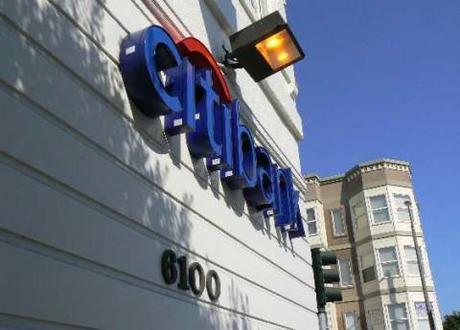 Citigroup was one of 15 major world banks to be downgraded in Moody’s recent credit ratings changes. Photo credit: Ken Banks, kiwanja.net
Citigroup was one of 15 major world banks to be downgraded in Moody’s recent credit ratings changes. Photo credit: Ken Banks, kiwanja.net
The background
More trouble on the global financial scene: Credit ratings agency Moody’s slashed the credit ratings of 15 major global banks and securities firms on Friday, just hours after Spain admitted that its bank may need as much as €62 billion in bailout money to keep them afloat for the next three years.
In a move reflecting the depth and urgency of the eurozone crisis and global slowdown, Moody’s downgraded banking giants including Bank of America, Barclays, Royal Bank of Scotland, Lloyd’s, Citigroup, BNP Paribas, Goldman Sachs, and Morgan Stanley. Said Moody’s, in a statement on their website, ” All the banks affected by these rating actions have significant exposure to the volatility and risks inherent in the capital markets business, which have led many to fail or avoid it only through the receipt of support from a third party.”
Stock markets are taking the news in stride, especially as Moody’s signaled its intentions back in February, but the decision will have major impact both in the medium and longer term, and both for the banks themselves and their customers.
What does this mean for the banks? Higher borrowing costs, for a start
A credit downgrade can drive the bank’s borrowing costs up, as well as mean that trading partners are more likely to ask for more collateral. In a piece of analysis, Reuters explained that “the downgrades will reinforce a trend that has seen weaker banks punished for their risk taking, while stronger banks are rewarded for conservative funding models, ensuring lower costs and higher margins.” So-called “safe haven” banks, those banks Moody’s gave the highest ratings to, including HSBC, Royal Bank of Canada and JP Morgan, are “funded by deposits from millions of retail customers and relying less than riskier banks on capital markets for short term financing”.
What does it mean for bank customers?
Whilst SkyNews suggested that the downgrades will have little affect on banking consumers, The Telegraph was a bit less calm, proclaiming that the downgrade could see banks passing on their increased costs to families and businesses, and could “choke” off the fragile UK economic recovery. Andrew Tyrie, Conservative chairman of the Treasury select committee, told the paper, “Any increase in the cost of funding would add to the squeeze on banks. The UK needs the banks to recover – we can’t have a full economic recovery without them. This is particularly important to hundreds of thousands of small businesses and sole traders who have difficulty getting access to loans at reasonable rates.”
What the banks say
Reaction from the institutions themselves varied, The Telegraph recorded: Royal Bank of Scotland called its downgrade “backward-looking” and complained that Moody’s didn’t give the struggling bank “adequate credit for the substantial improvements the Group has made to its balance sheet, funding and risk profile”. Morgan Stanley felt similarly, saying that “the ratings still do not fully reflect the key strategic actions we have taken in recent years”. Citgroup came out swinging, declaring that it “firmly believes its downgrade of Citi is arbitrary and completely unwarranted.” Most, however, made a point to note that whatever the situation, it was manageable.
But do we trust Moody’s?
Credit ratings, David Allen at Technorati noted, are a reflection of trust. “At its core, [Moody's] researches a company or entity, determines its creditworthiness, or trustworthiness, or just plain exposure to risk, and then they issue a rating. This rating is a figure of that entity’s (country, corporation, etc.) ability to meet its obligations. Something similar, in broad strokes, to a person’s credit score.” But the real question, some are saying, is not whether we can trust the institutions being rated, but whether we can trust the institutions doing the rating.
Why do we still trust Moody’s or any other rating agency after they rated the junk that took down our economy so highly?
— Anthony De Rosa (@AntDeRosa) June 22, 2012
More on banks
- Bailed-out bank Lloyd’s to claw back millions from executives
- Fred Goodwin knighthood shredded
- RBS boss turns down bonus

